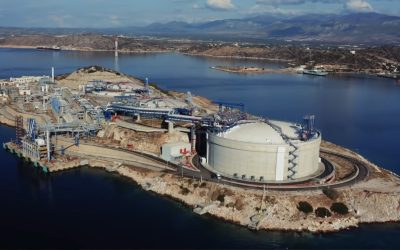The UN’s Intergovernmental Panel on Climate Change will release the executive summary of their climate science report today. The final report is due in May. Referred to as a summary for policymakers, today’s document will undoubtedly result in an unprecedented level of climate change rhetoric from activists and politicians.
Instead of just accepting what likely will prove to be sensationalism, we need to ask some basic questions of those who would radically restructure our economy in the vain hope of “stopping climate change.” What is your climate science-related background?
Many of those grabbing the spotlight have little or no post-secondary training in science or technology, let alone climate change. As professors Chris Essex and Ross McKitrick explained in their award-winning book, Taken by Storm, “the stage is populated by many people whose desire to save the world is deemed an acceptable, even preferable, substitute for technical understanding.”
Activists untrained in the field are as entitled as anyone to express their opinions about climate science, but we need to take what they say with a rather large grain of salt.
How do you know the “vast majority of scientists” agree with your viewpoint?
The only place that a climate change science consensus exists is in what Essex and McKitrick call “Official Science,” the collective voice of governments and so-called “science authorities.” But this is not real science. Among qualified researchers, there is an intense debate raging about the causes of the past century’s modest warming.
If we delayed CO2 reduction decisions by a couple of years to allow a closer examination of the science, what would be the impact on climate?
Essentially none. Even its supporters admit that complete compliance with Kyoto by all nations held to limits would result in less than a 0.1° C difference to global climate a half century from now.
How closely has climate tracked CO2 levels in the past?
Some 440 million years ago, when CO2 levels are estimated to have been more than 10 times today’s levels, our planet was in the depths of the coldest period in the last half billion years.
At other times, high CO2 levels coincided with warm periods. There is no meaningful correlation with temperature in the geological record. Over the past half million years, the Antarctic ice core records show a remarkable link between temperature and CO2.
Yet, these records consistently show that temperature rises some 800 years before CO2 rise, not after it. Even over the past century, the correlation between CO2 and warming is poor, with significant cooling taking place between 1940 and 1980 while human-produced CO2 emissions were increasing rapidly.
In all these records there is no evidence to show that CO2 has ever acted as a climate driver or even as a significant secondary effect to accelerate climate warming.
Considering what’s at stake – either the end of civilization, if you believe extremists, or a waste of hundreds of billions of dollars in one of the biggest science news scandals of all time, society must start to hold “warmers” to a far higher standard.
Asking the right questions would be a good start.
Tom Harris is an Ottawa-based engineer and executive director of the Natural Resources Stewardship Project (www.nrsp.com). Dr. Ian Clark, a science advisor to NRSP, is a professor of earth sciences at the University of Ottawa, where he focuses on the study of paleoclimatology and isotope hydrogeology.


